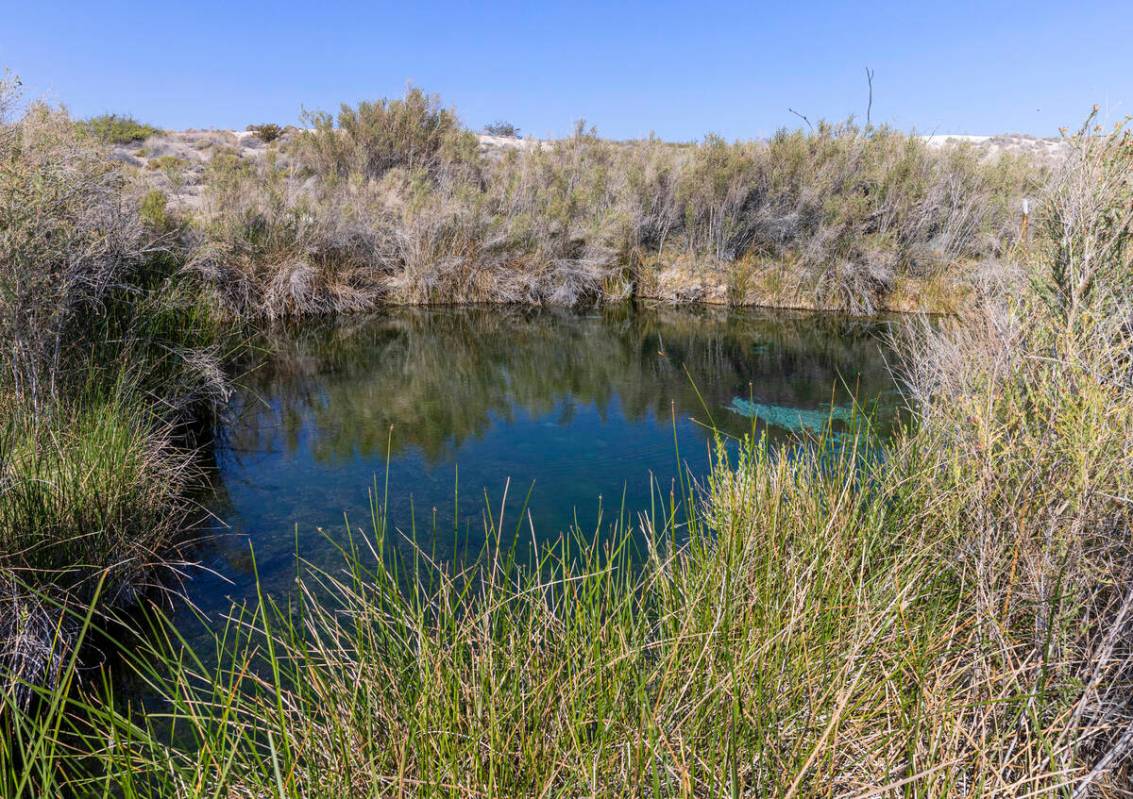
Two environmental groups are suing the federal government to block exploratory drilling for lithium they say could drain a federally protected oasis in the western Nevada desert and decimate several endangered and threatened species found nowhere else on Earth.
The lawsuit filed in federal court Friday by the Center for Biological Diversity and Amargosa Conservancy argues that allowing the lithium exploration project — which includes proposed drilling within 2,000 feet of Ash Meadows National Wildlife Refuge in Nye County — to move forward threatens “one of the most unique and biologically diverse areas in the United States, and possibly the world.”
It’s the latest escalation in the fight between those advocating for the need to ramp up electric vehicle production to reduce carbon emissions and groups seeking to protect fragile ecosystems near where the silvery-white metal is believed to exist in abundance.
Lithium, a key mineral used in the production of electric vehicle batteries, is becoming increasingly more valuable as the Biden administration pushes vehicle manufacturers to ramp up electric vehicle production as part of the president’s “clean energy” agenda.
The groups are asking a federal judge to prevent Canadian mining company Rover Metals from drilling dozens of 250- to 300-foot-deep exploration holes just north of Ash Meadows, citing concerns that the drilling could inadvertently drain water away from the federally protected springs and devastate the endemic species that rely on the springs’ waters.
The lawsuit accuses the Bureau of Land Management of failing to follow requirements under the Endangered Species Act and National Environmental Protection Act that it says should have triggered mandatory environmental reviews because of the potential impact of Rover’s drilling on multiple endangered and threatened species in the refuge.
Representatives from the BLM and Rover Metals did not respond to requests for comment Friday.
Ash Meadows, established as a wildlife refuge in 1984, is home to four endangered fish species and eight threatened plant species. They include the Devils Hole pupfish, which lives in a single pond on the refuge and is considered the world’s rarest fish.
“Ash Meadows is an irreplaceable treasure and it’s utterly appalling that the Bureau of Land Management would let a Canadian mining company trash it with drilling,” Patrick Donnelly, the Center for Biological Diversity’s Great Basin director, said in a statement. “We’re doing everything we can to save Ash Meadows and stop the agency’s drill-anywhere mentality from destroying this beloved wildlife refuge along with the plants and animals that depend on it to survive.”
The federal agency said previously that there were no automatic triggers for environmental reviews for the project because Rover Metals’ drilling notice outlines less than 5 acres of disturbed area.
Rover says ground samples from the area just north of the refuge have shown high levels of lithium, and it wants to drill up to 30 boreholes roughly 300 feet deep to see just how much of the valuable metal is in the underground clay.
Local pushback
The lawsuit won’t be the only pushback that Rover will face going forward.
During a Nye County Commission meeting Thursday, several residents voiced their concerns about the drilling project.
Crystal resident Dawn Duncan said she’s worried that the drilling has the potential to lead to a “catastrophic environmental disaster” for the springs in Ash Meadows and for the larger Amargosa River valley.
With no environmental impact study done and no regulatory plan in place, “no one can be certain until it’s too late,” Duncan said.
Nye County Commissioner Ron Boskovich questioned why the company wants to drill so close to the refuge, saying there are better options across the state.
“What they want to do out there is absurd,” Boskovich said. “And if there’s any way we can stop it, we need to do that.”
Contact Colton Lochhead at clochhead@reviewjournal.com. Follow @ColtonLochhead on Twitter.